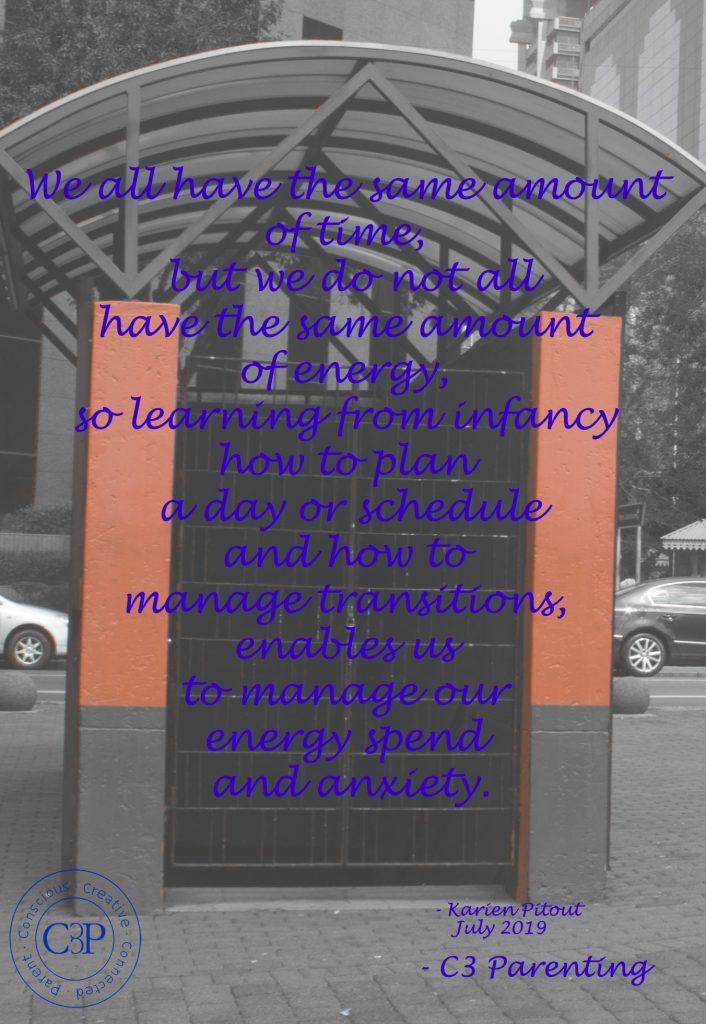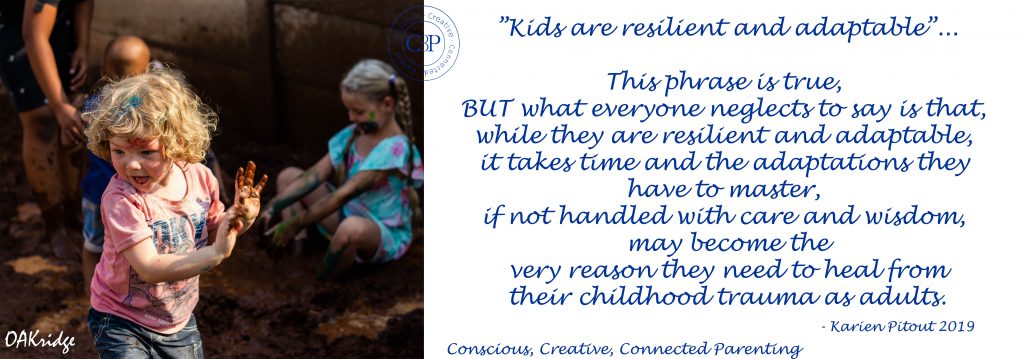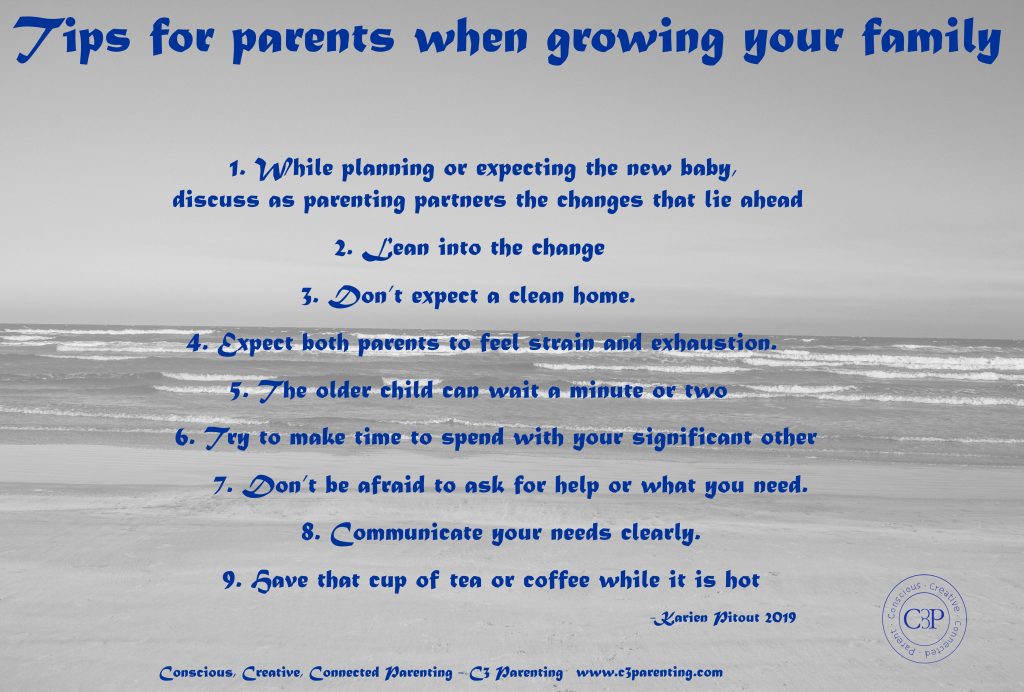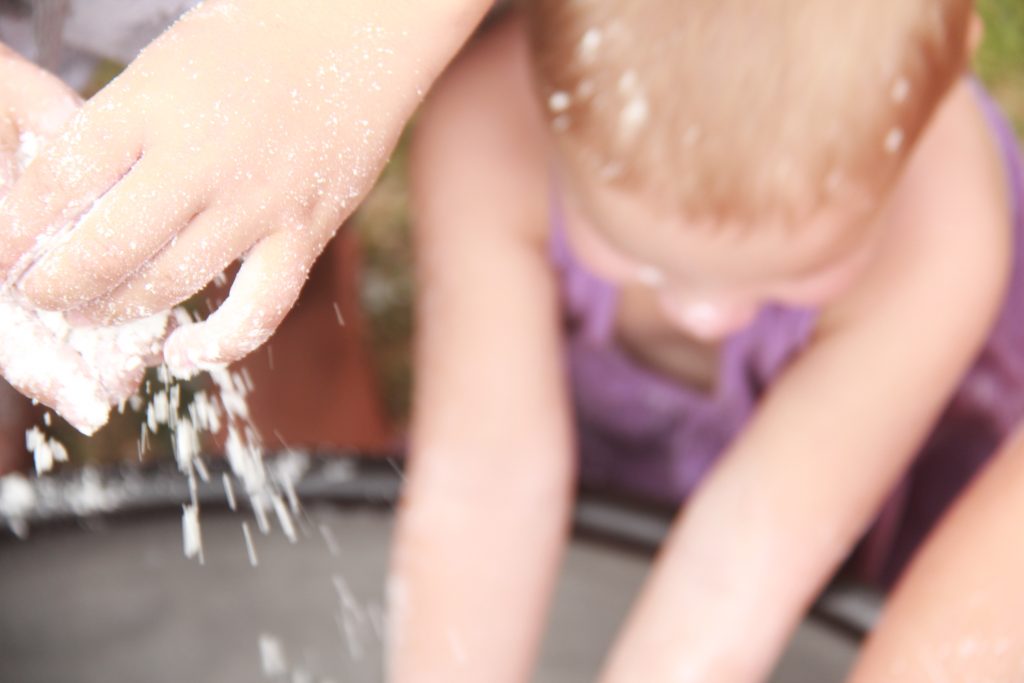Frequently parents are bombarded with the notion that “baby needs a routine/schedule.” The two terms are often conflated and it can become a mountain parents either avoid or choose to die on, and often to the detriment of the child. Both schedules and routines are needed, however it is how we manage them and engage with it that makes all the difference.
I am a mother who struggles to function within a schedule, but thrives with routine. My eldest is a schedule kind of kid and my youngest is cut from the same cloth as mother. How do we find a balance that speaks to the needs of all the family members?
The first step is to clearly distinguish between the two terms:
Schedule: A schedule is usually an event or activity that happens at a specific time and on a specific date: Things that would be considered as scheduled events are extra-curricular activities or even a birthday party.
Routine: Refers to the rhythm of a day. The happenings of a day have a certain order in which they take place, it happens every day, but the time frame of when can or may be adjusted according to how the day is going. Things that will shape a routine is brushing of teeth or bath time and even when we eat as a family.
(For differently abled families food may be scheduled instead of routine as some families need a set time of when a person needs to eat or even go to the toilet.)
Most, if not all people are in need of routine. Routine creates safety and security. Routine creates comfort even for the most “free-spirited, doing things at the drop of a hat” kind of person. It provides enough structure to a day without confining it to a list of deadlines. Routine is flexible within its ordered predictability. Routines are most often not set in the stone of time – the routine will stay the same, whether you are away on holiday and get to sleep late or whether you have to rise early to go to work.
Schedules on the other hand are a deadline. It is set in stone and often cannot be altered without negative consequences, either real or imagined.
Not all people have the same temperament, needs or even personality. For a person who thrives within order and structure, their routine can become a schedule. This is not always a problem, as they use this to then fight the anxiety and unpredictability that life creates. They hold dear their scheduled routines and this gives them a sense of control and belonging. It only becomes a problem if they cannot function in the event that their scheduled routine has been interrupted.
For some people a schedule can become the bane of their existence and create vast amounts of stress as they experience it as deadlines and things they have to do, something they cannot escape. They need the freedom to be able to embrace the impulse of a moment.
Most families have a bit of both in their family unit and creating space so that the free-spirited individual can find their moments of impulse and freedom and the more structured can find their sense of control is vital. The grey space this occupies is what we like to call “units of rhythm”. It is those measured beats that makes up the melody of life. As music has the ability to impact emotions, so do these units of rhythm.
In our home we make use of timers. We have our units of rhythm up on the wall. There are a few up around the house. There are some that have time slots, and some that just have the order of what needs to happen. The members of the family who need routine to become a schedule have the freedom to make it so, either by setting timers themselves or asking for timers to be set. Those who need routine for the comfort, but the freedom to determine when, there is also room created for that.
One of the first things we do as a family when starting our day is to look at the units of rhythm and discuss the day ahead. We highlight the routine items and we talk about the scheduled appointments for the day. Each person gets an opportunity to offer something that they need to be done, even before we start our day. This has already become the first step in the routine.
How do we manage this when our children are still small and we are trying to figure out what their temperament is? It all lies within communication. Talk to your baby and talk through the routine of the day and the planning. Share the units of rhythm with them. A child in need of a more structured schedule will protest and ask for it. A child of free-spirit will complain at the structure. A child in need of the schedule will ask for times and timeslots. They will want to plan and they will want to schedule. Whereas the child who dislikes scheduling will ask for more freedom, they will even ask for order reversals within a routine, they will enjoy impulse trips to the shops or to visit others, or even prefer to play in between the moments of executing the list of routine events. For them if they eat after brushing their teeth, their wheels will not fall off, they completed the task that needed to be done. Allowing each child to choose the order and time in between each routine activity will be an indication of their temperament.
Kids will want to play in between activities anyway. Children are not supposed to be focused all the time, they need the freedom to manage their own routine order, while we as adults manage the scheduled activities.
Watch out for over scheduling your children, especially the free-spirited child’s time. They need the “non-planned” time to survive within the pressures of society and its expectations. By teaching our children that schedules and routines have a space and we need to accommodate each other’s needs within our family unit, we are consciously teaching them inclusivity and stress management.
To the free-spirited parent, find ways to create breaks within your own routine, so that the looming responsibilities of schedules do not overwhelm you. Plan your day in such a way that there is room for impulsivity and freedom of doing whatever you need to in order to manage your own anxiety that comes from schedules. This will in turn teach your schedule loving child that there is room for impulsiveness and that there is room for structure. The more fluidly our children learn to adapt the less anxiety they will experience growing up.
8,113 total views







